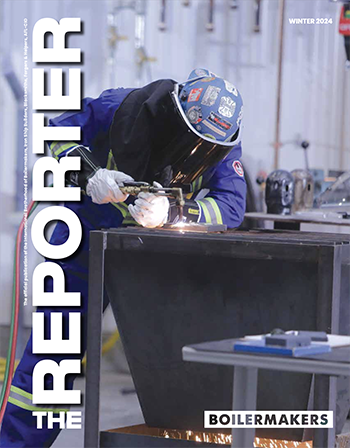Participants get look at planned training center in Utah
THE WESTERN STATES Tripartite conference held in Coeur D’Alene, Idaho, August 29-September 1 addressed many topics vital to industry partners; however, three issues received particular focus: organizing, training and marijuana use.
Industrial Sector Executive Director Tyler Brown and Organizer Jody Mauller explained a new initiative to hire as many as 16 new organizers over the next two years with the goal of reversing the trend of membership loss and bringing in new members who can supplement the construction sector workforce.
International Vice President J. Tom Baca told the conference, “We’re looking at growing our locals by thousands of members.” He said primary organizing targets would include shops, shipbuilding and manufacturing — areas where workers are involved in welding and handling structural steel, piping and vessels. “For our field construction sector to be strong, our industrial sector must be strong,” he noted.
Baca also discussed plans to establish modern training centers throughout the western states and showed an architectural rendering of a facility to be built in Salt Lake City, Utah. The facility will be named for International Rep James Cooksey.
Conference participants also heard from a specialist in the area of marijuana use. Andrew Powell, Director of Operations for Nursing Corps. Inc., said that while 25 states and the District of Columbia have medical marijuana laws and four states allow recreational use (with more states considering such laws), federal government agencies and other states continue to classify cannabis as illegal.
Powell said that the array of differing laws creates confusion for workers, especially those like field construction Boilermakers, who often travel from state-to-state. “Let your members know that just because marijuana may be legal in your state . . . does not mean they can come to work while using it. Impairment can last up to 24 hours after use. What you guys do is extremely safety sensitive, and safety sensitivity takes precedence over medical marijuana and any type of drug prescriptions people would be using.”








